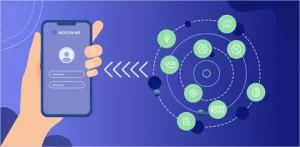Internet and Telecom
From Mainstream to Niche: The Evolution of Communication Providers in a Digital Age

The world of communication providers has undergone a dramatic shift in recent years. Gone are the days when big companies dominated the market with their mainstream services. Today, we’re witnessing an evolution towards niche players who specialize in delivering targeted solutions to specific audiences. In this blog post, we’ll explore how this change is impacting communication providers and what it means for businesses and consumers alike in our digital age. Get ready to discover why going niche is the new way to win in today’s competitive landscape!
The History of Communication Providers
The first communication providers were the telephone companies. They created a monopoly on communication and controlled the market. This changed in the 1980s when the government deregulated the telecommunications industry, opening it up to competition.
The first competitive providers were long distance companies like MCI and Sprint. They offered cheaper rates than the incumbent telephone companies and quickly gained market share. The 1990s saw the rise of cellular providers like AT&T Wireless and Verizon Wireless. They offered mobile voice and data services that revolutionized communication.
Today, there are dozens of different types of communication providers offering a wide range of services. There are traditional telephone companies, cable companies, satellite companies, VoIP providers, and mobile carriers. Each provider has its own strengths and weaknesses, so it’s important to choose one that meets your specific needs.
The Rise of the Internet
The internet has been a game-changer for communication providers. It has allowed them to reach new markets and offer new services. The internet has also created new opportunities for niche providers.
The rise of the internet has had a profound impact on the way we communicate. It has allowed us to connect with people all over the world in an instant. It has also given rise to new types of communication providers, such as VoIP and video conferencing services.
The internet has transformed the way we do business. It has made it possible for companies to communicate with customers and clients in real-time, regardless of location. It has also allowed businesses to tap into new markets and reach new customers.
The rise of the internet has led to the demise of many traditional communication providers, such as long distance companies and fax machines. However, it has also created new opportunities for niche providers, such as VoIP and video conferencing services.
The Decline of Traditional Providers
As digital communication has become more prevalent, traditional communication providers have seen a decline in their businesses. This is due to the fact that digital channels are often more convenient and affordable for consumers. Additionally, digital channels offer more features and functionality than traditional providers. For example, many digital channels allow for instant messaging, video calling, and file sharing, which are not typically offered by traditional providers. As a result, traditional communication providers have been forced to adapt their offerings to compete with thegrowing number of digital alternatives.
The Growth of Niche Providers
In a digital age, communication providers are evolving from mainstream to niche. This is due to the growth of niche providers, who are able to offer more specialized and targeted services than their mainstream counterparts.
Niche providers are able to identify specific needs and wants of their target markets and design their products and services around these. This allows them to better serve their target market, which in turn leads to increased customer satisfaction and loyalty.
The growth of niche providers is also due to the rise in popularity of digital communication channels such as social media and instant messaging. These channels allow for more targeted and personalized communication, which is what many consumers now crave.
If you’re looking for a more specialized and tailored communication experience, then a niche provider may be the right choice for you. With their intimate knowledge of their target market and ability to deliver personalized service, they can offer you an unmatched level of service.
The Future of Communication Providers
The internet has disrupted nearly every industry, and the telecommunications sector is no exception. In the early days of the internet, communication providers were largely dominated by a few big players. But as consumers have become more comfortable using digital tools for communication, a number of niche providers have emerged to meet their specific needs.
This trend is likely to continue in the years to come, as more and more consumers move away from traditional communication methods like phone calls and face-to-face conversation in favor of digital options like instant messaging, video chat, and social media. As a result, we can expect to see even more niche providers pop up to fill the gaps left by the mainstream providers.
So what does this all mean for the future of communication providers? For one thing, it’s likely that we’ll see even more consolidation as the industry continues to evolve. Big players will continue to buy up smaller companies in an effort to stay competitive, while smaller companies will need to focus on differentiation in order to survive. Additionally, we can expect to see new business models emerge as companies look for ways to capitalize on the shifting landscape.
Ultimately, the future of communication providers is anything but certain. But one thing is for sure: the landscape is changing rapidly, and companies will need to adapt if they want to stay ahead of the curve.
Conclusion
In a digital age, communication providers have had to adapt to changing customer needs and preferences. This has caused both mainstream and niche providers to rise, with each offering its own advantages and disadvantages. Mainstream providers are often more cost effective but may lack in features while niche providers can offer more specialized services but at greater costs. The evolution of communication providers has been rapid over the last few years and will continue as technology advances, leading to further changes within the industry.
Digital Development
7 Benefits of Hiring an SEO Agency in the USA

Introduction
In today’s digital age, every business aims to improve its visibility online and rank higher on Google. Nonetheless, accomplishing this is not as straightforward as it appears. Google’s algorithms are constantly changing, competition is fierce, and customers increasingly turn to search engines before making any purchase decisions.
This is why many businesses prefer to collaborate with an SEO Agency in the USA rather than managing SEO internally. Whether you’re running a startup or a large enterprise, hiring an expert SEO partner can significantly improve your online visibility, website traffic, and ultimately, revenue.
In this blog post, we’ll dive into the seven major benefits of hiring an SEO Agency in the USA, current SEO trends, insights across different states, and how companies like Team Tweaks Technology can support your business growth.
Why Businesses Need an SEO Agency in the USA
Search engines drive more than 53% of global website traffic (BrightEdge, 2024), and with Google processing over 8.5 billion searches daily, the online competition is immense.
To stand out, businesses must properly optimize their websites. An SEO Agency in the USA brings a deep understanding of market trends, local competition, and constant algorithm updates. Instead of making random guesses, you gain a data-driven, proven strategy that aligns with your goals.
1. Access to Industry Experts and Advanced Tools
An experienced SEO Agency in the USA provides access to a team of skilled professionals who specialize in various SEO fields, including:
- Technical SEO
- On-page optimization
- Content marketing
- Link building
- Local SEO
- E-commerce SEO
Additionally, agencies utilize expensive, premium tools such as:
- Google Search Console
- SEMrush
- Ahrefs
- Screaming Frog
- Surfer SEO
While these tools can be costly for individual businesses, partnering with an agency provides access to them at no additional cost.
Benefit:
You save money while benefiting from expert-level execution, ensuring your SEO strategy is highly effective.
2. Better ROI Compared to In-House SEO
Hiring an in-house SEO team can be expensive. You’ll need to cover:
- Salaries for team members
- Software subscriptions
- Training costs
On the other hand, a professional SEO Agency in the USA provides a full team of specialists with proven strategies, clear reporting, and measurable results at a fraction of the cost.
3. Stay Updated with Google Algorithm Changes
Google’s algorithms change several times each year, and core updates can significantly impact website rankings. Major SEO trends in 2024 and 2025 include:
- Helpful Content Updates
- AI-generated content filtering
- EEAT (Experience, Expertise, Authoritativeness, Trustworthiness) focus
- Spam link penalties
- Mobile-first indexing
A professional SEO Agency in the USA constantly monitors these updates to ensure your website remains compliant and optimized.
4. Strong Local SEO for US-Based Businesses
If your business operates in specific states, such as:
- California
- Texas
- Florida
- New York
- Illinois
- North Carolina
It’s essential to have a strong local SEO strategy. A reliable SEO Agency understands:
- Google Business Profile optimization
- Local citations
- State-specific keywords
- City-based landing pages
- Review management
For example, if your business operates in Texas, optimizing for keywords like “Houston SEO services” or “Dallas marketing agency” is critical for local visibility. Without a tailored local strategy, you risk losing valuable local leads.
5. Scalable Growth with White Label SEO Services
White label SEO services allow agencies to resell SEO services under their own brand while another expert team handles execution. This model benefits smaller marketing agencies by providing:
- SEO white label packages
- White label SEO agency partnerships
- White label SEO reporting
Why It Matters:
- You can offer SEO services without hiring new staff
- You expand services quickly
- You maintain brand identity
- You increase profit margins
This scalable model is expected to grow rapidly in 2025, enabling agencies to serve clients more efficiently.
6. Data-Driven Strategy and Reporting
SEO isn’t based on guesswork; it’s driven by data. A professional SEO Agency in the USA provides detailed reports that track:
- Keyword research
- Competitor analysis
- Monthly traffic reports
- Conversion tracking
- Technical audit reports
Key SEO Metrics to track:
| Metric | Why It Matters |
|---|---|
| Organic Traffic | Measures growth from search engines |
| Keyword Rankings | Shows visibility improvements |
| Bounce Rate | Indicates content quality |
| Conversion Rate | Tracks business results |
| Domain Authority | Reflects website strength |
Detailed reporting ensures that you know exactly how your SEO efforts are performing, making it easier to adjust strategies as needed.
7. Long-Term Brand Authority
Unlike paid ads, SEO helps build long-term authority. A top SEO Company in the USA will help you:
- Create high-quality content
- Earn authoritative backlinks
- Improve user experience
- Build brand trust
Over time, these efforts position your website as a trusted industry leader. As your brand authority grows, so does customer loyalty and conversions.
Current SEO Trends in the USA (2025)
The SEO landscape is evolving, and businesses must keep up to remain competitive. Some key trends include:
- AI-Powered Search: Google is increasingly using AI to understand user intent, so content must be user-focused, helpful, and clear.
- Voice Search Optimization: With more people using voice assistants like Alexa and Siri, businesses need to optimize for long-tail conversational keywords.
- Video SEO Growth: YouTube and short-form videos are ranking higher, meaning businesses are investing more in video content.
- Mobile Optimization: Over 63% of US searches occur on mobile devices, so websites must be fast and mobile-friendly.
- EEAT-Based Content Strategy: Google prioritizes content that demonstrates real experience, expertise, authority, and trust. Implementing this strategy is essential for ranking well.
State-Wise SEO Demand in the USA
SEO competition varies across different states, and your SEO strategy must adapt accordingly. Here’s an overview of SEO demand by state:
| State | SEO Competition Level | Key Industries |
|---|---|---|
| California | Very High | Tech, Startups, E-commerce |
| Texas | High | Energy, Real Estate, Healthcare |
| Florida | Medium-High | Tourism, Local Services |
| New York | Very High | Finance, Media |
| Illinois | Medium | Manufacturing, B2B |
State-specific strategies are essential to optimize for local competition and key industries.
Why Choose Team Tweaks Technology?
If you’re looking for a trusted SEO Agency in the USA, consider Team Tweaks Technology. They offer:
- Complete SEO solutions
- White label SEO services
- Technical SEO audits
- Content marketing
- Link building
- PPC services
- Mobile app development
- Custom web development
What sets them apart?
- Data-driven SEO strategies
- Transparent reporting
- Scalable white label SEO packages
- Dedicated SEO specialists
- Proven results across industries
Whether you’re seeking local SEO or enterprise-level solutions, Team Tweaks Technology provides tailored strategies to meet your needs.
When Should You Hire an SEO Agency in the USA?
Consider hiring an SEO Agency in the USA if:
- Your website traffic is stagnating or declining
- You’re struggling to rank for target keywords
- Your competitors outrank you
- You lack in-house SEO expertise
- You need scalable white label SEO services
- You want long-term organic growth
SEO is a long-term commitment, but with the right partner, results become predictable.
How to Choose the Right SEO Company in the USA
Before selecting an SEO agency, consider:
- Case studies and client reviews
- Reporting transparency
- Clear pricing structure
- Experience in your industry
- Availability of white label SEO services (if needed)
Be cautious of agencies that promise “instant #1 rankings”—SEO is about strategy and consistency, not shortcuts.
Final Thoughts
Hiring an SEO Agency in the USA is a strategic decision that can help propel your business to greater heights. With increasing competition and continuously changing search algorithms, having expert guidance is essential. From local optimization to large-scale enterprise growth and white label services, agencies provide comprehensive support.
If you’re ready to boost your rankings, build long-term brand authority, and achieve sustainable growth, partnering with a professional SEO Company like Team Tweaks Technology can set you on the right path.
Digital Development
Unlocking Success: Essentials of Tailored Mobile App Development

The modern business landscape demands agility, innovation, and a constant willingness to adapt to shifting consumer expectations. Mobile applications have become one of the most powerful tools available to businesses of all sizes, enabling them to connect with customers, optimize workflows, and unlock new revenue streams.
However, not all mobile app development services are created equal. To truly capitalize on the potential of mobile technology, businesses need a partner that understands their unique needs and has the expertise to deliver a customized solution. That is precisely what a top mobile app development company provides — a combination of deep technical knowledge, strategic thinking, and an unwavering focus on results.
Grasping Business Requirements Prior to Coding Anything
The most effective mobile app development services begin not with coding, but with listening. Every business has its own goals, challenges, customer base, and competitive pressures. A development partner that takes the time to understand these nuances is far more likely to deliver an application that creates real value. During the initial discovery phase, experienced developers work closely with stakeholders to gather requirements, identify pain points, and define success metrics.
This consultative approach distinguishes a top mobile app development company from vendors that offer one-size-fits-all solutions. By deeply understanding the business context, developers can make informed decisions about technology choices, feature prioritization, and user experience design that align with strategic objectives rather than purely technical preferences.

Custom Development vs. Off-the-Shelf Solutions
One of the first decisions businesses face when planning a mobile application is whether to opt for custom development or an off-the-shelf product. While pre-built solutions may seem attractive due to their lower upfront costs, they often fall short when it comes to meeting specific business requirements, integrating with existing systems, or differentiating from competitors. Custom development, on the other hand, gives businesses complete control over features, design, and functionality.
Development firms help clients assess these trade-offs objectively and recommend the approach that best suits their needs. In many cases, a hybrid approach is optimal — leveraging existing frameworks and libraries to accelerate development while customizing the application to meet unique business requirements. This pragmatic approach strikes the right balance between cost efficiency and bespoke functionality, ensuring that businesses get maximum value from every dollar invested.
Technology Stacks Suited to Your Business
The technology stack underlying a mobile application has a profound impact on its performance, scalability, and long-term maintainability. Professional developers stay current with the latest technologies and frameworks, enabling them to recommend the best stack for each specific use case. For businesses targeting both iOS and Android platforms simultaneously, cross-platform frameworks such as Flutter and React Native offer significant advantages in terms of development speed and code reusability.
For applications with complex backend requirements — such as real-time data processing, machine learning integration, or high-volume transaction handling — experienced developers will architect robust server-side solutions using scalable cloud platforms and modern API frameworks. Technoyuga brings this level of technical depth to every project, ensuring that the chosen technology stack not only meets current demands but also supports the application’s long-term growth trajectory without requiring costly rewrites.
User-Centric Design as a Business Differentiator
In a marketplace where users have thousands of apps to choose from, design quality is a critical differentiator. An application that is visually appealing, easy to navigate, and responsive to user needs will consistently outperform a technically superior but poorly designed competitor. Professional mobile app development services always include dedicated UX research and UI design phases that place the end user at the center of every design decision, from color palettes and typography to navigation flows and micro-interactions.
Design is not just about aesthetics — it is about creating experiences that guide users toward desired actions, reduce friction, and build brand loyalty. A top mobile app development company will invest in user research, create detailed personas, build interactive prototypes, and conduct usability testing before finalizing the design. This investment pays dividends in the form of higher user adoption rates, better retention, and stronger app store reviews.
Integration With Existing Business Systems
Very few businesses operate in isolation. Most have existing CRM platforms, ERP systems, payment gateways, logistics tools, and marketing automation platforms that must integrate seamlessly with any new mobile application. Experienced developers understand this reality and have deep expertise in building and managing complex API integrations. They design integration architectures that ensure reliable data flow between systems while maintaining performance and security throughout.
The ability to integrate effectively with existing business infrastructure is one of the defining capabilities of a top mobile app development company. It requires not only technical skill but also a thorough understanding of enterprise IT environments and the ability to navigate the complexities that inevitably arise when connecting disparate systems across different vendors and technology generations.
Ensuring Quality Through Rigorous Testing
A mobile application that crashes, loads slowly, or behaves unpredictably will quickly lose users and damage a brand’s reputation. This is why rigorous quality assurance is an indispensable component of any professional mobile app development service. Testing must cover a wide range of scenarios including functional testing, performance testing under load, compatibility testing across devices and operating system versions, security vulnerability scanning, and user acceptance testing.
Professional development teams invest heavily in QA infrastructure and maintain dedicated testing specialists who work in parallel with engineering. This proactive approach to quality catches issues early in the development cycle, dramatically reduces the cost of fixes, and ensures that the application performs reliably from the moment it reaches users’ hands.
Post-Launch Support and Continuous Improvement
Launching a mobile application is not the end of the journey — it is the beginning. User behavior data, performance analytics, and direct feedback will reveal opportunities for improvement and new features that can enhance value over time. A reliable development partner will provide ongoing maintenance and support services that keep the application secure, performant, and aligned with evolving business needs.
Continuous improvement cycles, regular updates, and proactive monitoring are all hallmarks of a development partner genuinely invested in the long-term success of your application. Businesses that maintain this kind of ongoing relationship with their development partner are consistently better positioned to adapt to market changes and capitalize on emerging opportunities.
In summary, mobile app development services tailored to specific business needs deliver far greater value than generic solutions. By partnering with the right development firm that invests in understanding your goals, applies the right technology, designs for users, and supports you long after launch, you set your business up for sustained digital success.
Digital Development
Digital Biomarkers Market Report 2035 | Size, Share & Trends

The Digital Biomarkers Market is rapidly evolving, offering critical insights into its current dynamics, structural components, and regional trends. This report targets stakeholders, vendors, researchers, and policymakers who seek an accurate understanding of the market landscape without delving into speculative analysis. It reflects real-time market conditions with validated data and established methodologies, supporting strategic decision-making in a post-pandemic world.
Key Questions Addressed
The report aims to answer several vital questions:
- What are the major drivers for the Digital Biomarkers Market?
- What is the current size of the market?
- Who are the key players operating in this industry?
- What will the overall market size be in 2035?
- What is the future outlook for the Digital Biomarkers Market?

Market Segmentation
To facilitate a detailed analysis, the Digital Biomarkers Market is categorized across several key dimensions:
- Key Report Attributes
- Historical Trend
- Forecast Period
- Future Trend
- Market Size for 2025
- Market Size for 2035
- Compound Annual Growth Rate (CAGR) (till 2035)
- Type of Product (Software, Applications, Wearables, etc.)
- Purpose of Solution (Diagnosis, Early Detection, Monitoring, Predictive Insights)
- Type of Biomarker (Cognitive, Idiosyncratic, Physiological, Vocal, and Others)
- Therapeutic Area (Autoimmune, Cardiovascular, Infectious, Mental Health, Neurological, Respiratory, Substance Abuse, etc.)
- Business Model (B2B and B2C)
- Key Geographical Regions
The segmentation allows for a nuanced understanding of this growing market.
Market Size and Forecast
The global digital biomarkers market was valued at USD 5.6 billion in 2024, with projections estimating it to reach USD 7.4 billion in 2025 and USD 35.8 billion by 2035. This growth represents a significant CAGR of 17.0% during the forecast period. Key drivers include an increase in chronic diseases, the aging population, and advancements in digital health technologies.
Regional Analysis
The market is geographically segmented into five principal regions:
- North America: Including the U.S. and Canada
- Europe: Comprising the U.K., Germany, France, Italy, and the Rest of the EU
- Asia Pacific: Encompassing India, China, Japan, South Korea, Australia, and the Rest of APAC
- Latin America: Covering Brazil, Argentina, Chile, and other countries
- Middle East & Africa: Including Saudi Arabia, U.A.E., South Africa, and more
This regional breakdown is crucial for understanding production dynamics, market presence, trade activities, and specific adoption trends across different geographical areas.
Competitive Landscape
The report highlights leading companies in the Digital Biomarkers Market, providing a thorough analysis of their current strategies, product portfolios, and market presence. Key players include notable companies from North America, Europe, Asia-Pacific, and MENA regions.
- Key Players: Companies like AliveCor, Biogen, and Empatica are examined concerning their strategic initiatives, partnerships, production capacities, and focus on innovation.
Strategic Frameworks
To enhance market understanding, the report employs the following analytical tools:
- SWOT Analysis: Evaluates internal strengths, weaknesses, opportunities, and threats of market players.
- Porter’s Five Forces Analysis: Assesses competition intensity, supplier and buyer power, threats of new entrants, and substitution risks.
These frameworks clarify market strengths and the external pressures impacting strategic decisions.
Insights from Market Data
The study reveals that:
- The wearables segment currently captures the largest market share (50%), driven by patient preferences for virtual consultations and remote monitoring technologies.
- The monitoring purpose holds the highest share of the market, set to dominate the forecast period, while predictive insights are projected to capture 30% of the market by 2035, thanks to AI and machine learning advancements.
- Neurological disorders account for over 35% of current applications for digital biomarkers.
Recent Developments in Root Analysis
Recent initiatives in the digital biomarkers landscape underline the sector’s dynamism:
- In September 2024, Koneksa announced a collaboration with Regeneron to utilize digital biomarkers for remote disease progression measurement in neurodegenerative disorders.
- EarliTech Diagnostics raised USD 21.5 million in a Series B funding round in April 2024.
- In March 2024, Indivi partnered with Biogen to develop digital biomarkers for Parkinson’s disease treatment.
These developments highlight the sector’s continuous evolution and promise.
Challenges and Future Outlook
While the digital biomarkers market offers significant growth potential, it also faces challenges, including technological adoption barriers, regulatory hurdles, and the need for reliable data. Stakeholders must navigate these complexities while leveraging emerging opportunities, such as advancements in AI integration and increasing patient engagement.
The report indicates that the Digital Biomarkers Market is on an upward trajectory, shaped by innovations and adaptations in clinical practice. Its integration into healthcare processes aims to enhance disease diagnosis, predict complications, and improve overall patient outcomes.
Conclusion
This comprehensive report serves as a reliable reference for understanding the present dynamics of the global Digital Biomarkers Market. By refraining from speculative forecasts and instead providing a data-backed evaluation, it positions stakeholders to make informed, strategic decisions.
About Roots Analysis
Roots Analysis specializes in delivering insights across various sectors, including healthcare, pharmaceuticals, and biotech. With over a decade of experience and a portfolio of more than 750 clients, including Fortune 500 companies and innovative startups, they are a trusted partner for market intelligence.
This detailed overview of the Digital Biomarkers Market encapsulates essential findings, insights, and projections that stakeholders need to understand this evolving landscape.
-
Business3 years ago
Cybersecurity Consulting Company SequelNet Provides Critical IT Support Services to Medical Billing Firm, Medical Optimum
-
Business3 years ago
Team Communication Software Transforms Operations at Finance Innovate
-
Business3 years ago
Project Management Tool Transforms Long Island Business
-
Business2 years ago
How Alleviate Poverty Utilized IPPBX’s All-in-One Solution to Transform Lives in New York City
-
health3 years ago
Breast Cancer: The Imperative Role of Mammograms in Screening and Early Detection
-
Sports3 years ago
Unstoppable Collaboration: D.C.’s Citi Open and Silicon Valley Classic Unite to Propel Women’s Tennis to New Heights
-
Art /Entertainment3 years ago
Embracing Renewal: Sizdabedar Celebrations Unite Iranians in New York’s Eisenhower Park
-
Finance3 years ago
The Benefits of Starting a Side Hustle for Financial Freedom































